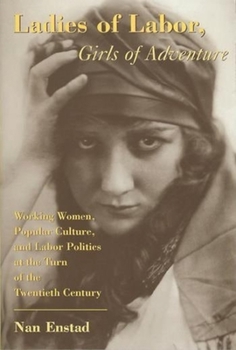Ladies of Labor, Girls of Adventure: Working Women, Popular Culture, and Labor Politics at the Turn of the Twentieth Century
Select Format
Select Condition 
Book Overview
At the beginning of the twentieth century, labor leaders in women's unions routinely chastised their members for their ceaseless pursuit of fashion, avid reading of dime novels, and "affected" ways, including aristocratic airs and accents. Indeed, working women in America were eagerly participating in the burgeoning consumer culture available to them. While the leading activists, organizers, and radicals feared that consumerist tendencies made...
Format:Paperback
Language:English
ISBN:0231111037
ISBN13:9780231111034
Release Date:June 1999
Publisher:Columbia University Press
Length:320 Pages
Weight:0.88 lbs.
Dimensions:0.6" x 6.0" x 9.0"
Grade Range:Postsecondary and higher
Customer Reviews
1 rating
Readable--fun--pathbreaking
Published by Thriftbooks.com User , 20 years ago
Enstad takes U.S. women's history in important new directions because she understands how young working-class women created their own class-conscious identity in terms made available by consumer culture. In this context hats, shoes and pulp-fiction gave working-class women fun, spunky ways to of asserting themselves and their interests. Alas, at the time, neither male union activists nor middle-class women allies understood these young girls' politics, and the union movement suffered for its misunderstanding. But Enstad understands these girls perfectly. In Enstad's analysis movies and fashion become political--as they in fact were. And thanks to her explanation I finally understand why my feisty Jewish grandmothers insisted on calling themselves and their friends "ladies." A must-read for anybody who loves the new women's history.





